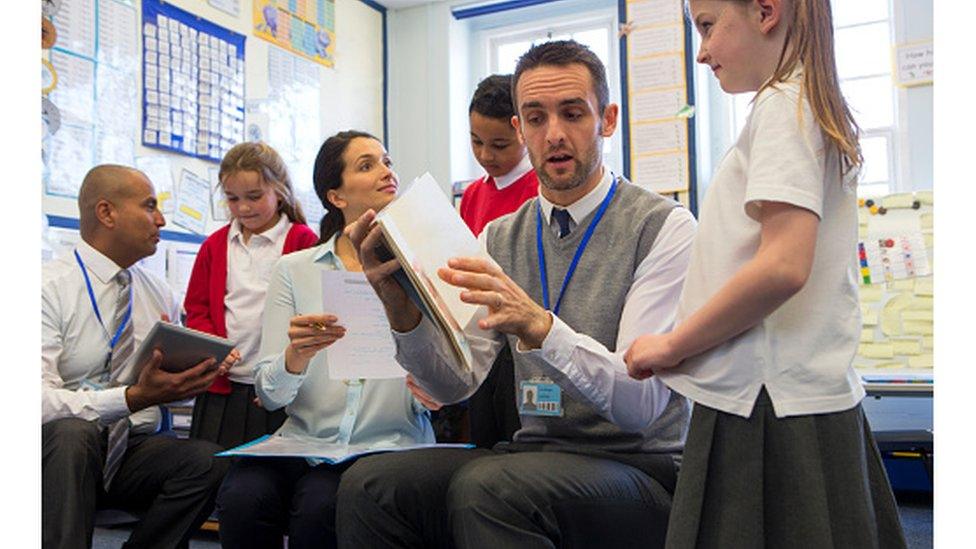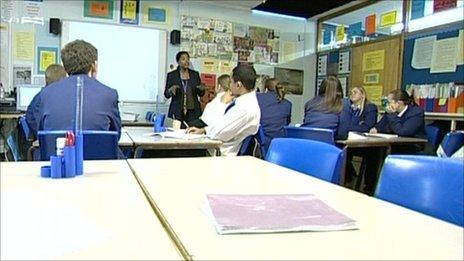Worst primaries to be turned into academies
- Published

Ministers want to raise standards in primary schools
Four hundred primary schools in England deemed to be the weakest are to be turned into academies in a bid to drive up standards, the prime minister has announced.
David Cameron said the schools would be paired with a sponsor or be in the process of being reopened as an academy by the end of next year.
He said children should not be "left to struggle in failing schools".
Teaching unions say academy status does not automatically mean improvement.
Some 200 poor primaries are already on the way to becoming academies.
Like the next 400 schools, they were selected on the basis of their Ofsted reports and Sats test results.
Academies are state funded, but privately-run schools which operate independently of their local education authority. They have more freedom to innovate and do not have to follow the national curriculum.
But there have been several high-profile disputes where academy status has been enforced in struggling schools by Department for Education officials.
Speaking at a cabinet meeting at an academy school in Bristol, Mr Cameron said the driving mission for this government was to build an "aspiration nation" and that a first-class education system was central to that vision.
'Chance to shine'
"We have seen some excellent progress with our reforms, including turning 200 of the worst performing primary schools into sponsored academies, and opening more academies in the last two years than the previous government opened in a decade.
"Time and time again we have seen how academies with their freedom to innovate, inspire and raise standards are fuelling aspirations and helping to spread success.
"So now we want to go further, faster, with 400 more underperforming primary schools paired up with a sponsor and either open or well on their way to becoming an academy by the end of next year.
"It is simply not good enough that some children are left to struggle in failing schools, when they could be given the chance to shine."
'Direct threats'
A £10m fund has also been announced to encourage the development of academy sponsors.
But the National Union of Teachers general secretary Christine Blower there was no evidence to show that academy status in primary schools brings any educational benefits.
"Despite this the coalition government is pressing ahead regardless, removing schools from their local authority and handing them over to unelected sponsors.
"These decisions are being taken over the heads of local authorities, teachers, head teachers and parents.
"Despite direct threats and reproaches from Michael Gove and his department many local authorities remain unconvinced of the merits of the government's vision for education."
Stephen Twigg, shadow education secretary, said: "The original focus of Labour's academy programme was on underperforming schools but unlike this government we worked with schools to ensure improvements were sustainable.
"Changing the type of school is not enough. We need a programme to raise the quality of teaching and school leadership which is what makes the most difference but under this government, we've seen 10,000 teachers leave the profession.
"We also need a 'One Nation' education plan, getting strong schools to support weaker schools so that no school is left behind. That can be achieved in many ways, including through federations, clusters of schools and co-operative trusts. Academies are not the only answer."
- Published7 May 2016

- Published16 June 2011
